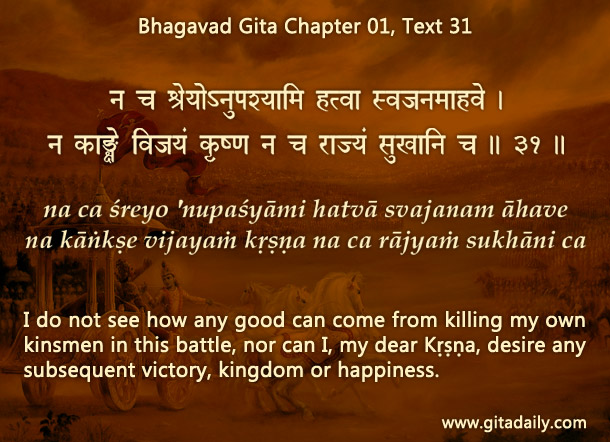“I am not interested in God,” so say many people while turning away from the Bhagavad-gita. What they don’t understand is that the Gita is not just a book about God – it is about them and what interests them the most: the search for lasting love.
No doubt, the Bhagavad-gita is a book of profound theology. It reveals a majestic conception of God that can charm any open-minded seeker.
Emotional wounds originate not so much from our specific relationship problems as from the universal problem of the rupture of the human heart from the divine heart.
But its theologically erudite discussions are framed in the context of a broken heart that needs urgent healing. The Bhagavad-gita (01.31) depicts how Arjuna is overwhelmed by the prospect of an emotionally wrenching fratricidal war that began as a bitter relationship conflict. We all face relationship conflicts that sometimes leave us heartbroken.
The Gita is a therapeutic message for healing all such wounds. It explains that these emotional wounds originate not so much from our specific relationship problems as from the universal problem of the rupture of the human heart from the divine heart. That rupture subjects us to bhavaroga, the disease of material existence. We are eternal souls meant to love God, Krishna, but being ruptured from him, we seek the same love in relationships formed on the basis of our bodies. However, even the best of such relationships are thwarted sooner or later by the inevitable perishability of all material bodies.
The therapy for our ruptured heart is bhakti-yoga, which redirects our love from the world to Krishna. The Gita’s theology sets the stage for this therapy. Its revelation of Krishna’s glory convinces us that his love possesses the omnipotence to heal even the most inconsolably wounded hearts. No matter how worldly relationships disappoint or devastate us, our relationship with him always solaces and strengthens, as Arjuna’s restored morale at the end of the Gita demonstrates.

Explanation of article:
https://www.youtube.com/watch?v=neHjRCDyfnI

A beautiful-insightful essay. Many Thanks.